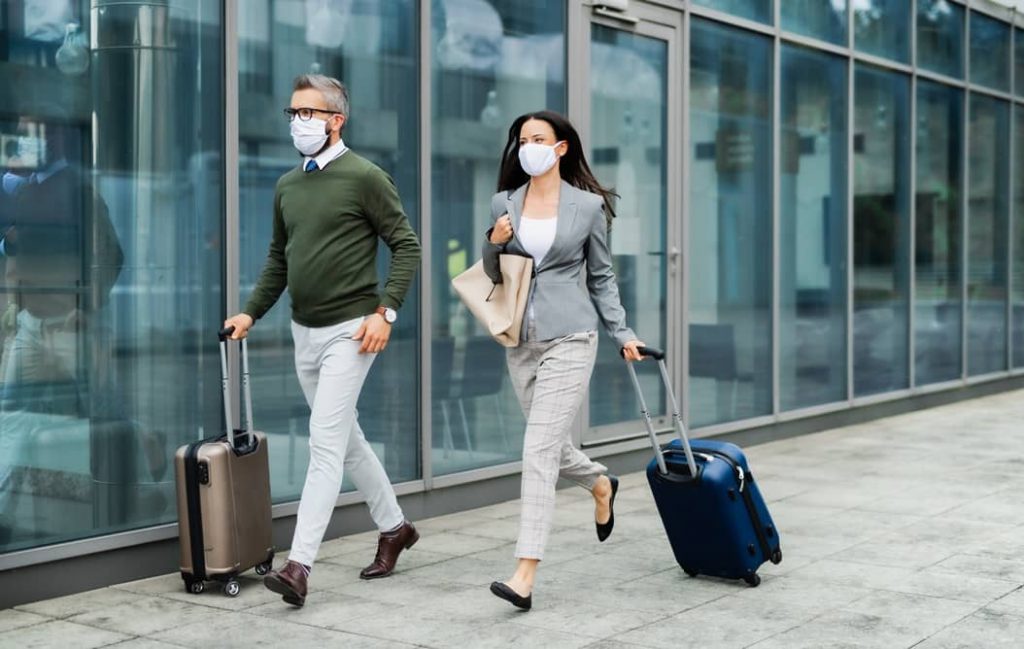Managing business travel has become more difficult after the recent pandemic. COVID19 has drastically changed the landscape of business travel and posing new and unknown demanding situations as the usual demands of work continue to exist everywhere. While we cannot predict the future, there is no doubt that the pandemic will have long-term implications for the travel experience and business plans of companies.
However, it is certain, for business travel in 2021, things look optimistic, expected to be by the end of the year. There are forecasters out there predicting that business travel will never return to 2019 levels and a high percentage of meetings and events will remain virtual. But less travel can be more. Pre-covid business travel is dead. Whether or not travel volume fully recovers, business travel can become more valuable, strategic, and valued than ever.
Most organizations are now willing to be flexible about their travel policies and expenses for the safety of their employees. According to a recent survey, about 65% of companies said they had changed their travel safety and security policies. About 55% of companies claim that they have developed new processes and technologies. In addition, unnecessary business travel is being curtailed and the company has tightened business travel approvals.
The business travel market worldwide is expected to lose $810.7 bn USD as a result of the pandemic.
The positive news is that business travel companies say travelers are hopeful about returning, with the caveat as long as it's safe. Hotels and airlines are optimistic and say it is only a matter of time before the industry returns to its former glory. The respective CEOs of EasyJet, Emirates and United Airlines have commented on the matter.
Business Travel in the Post Pandemic World
Soon after the COVID19 pandemic brought global travel to a halt, one thing became clear: business travel will face slower returns than leisure travel. Pre-pandemic reasons for business travel will be re-examined, the post-pandemic world will present new reasons to travel.
The launch of the COVID19 vaccine has led many companies to understand how to deal with a post-pandemic world. And even with widespread vaccinations and research showing flying is relatively safe against Covid, it's not recovering like holiday travel. Given the ubiquitous and psychological burden of lockdown restrictions, it may come as no surprise that many employees are now more willing than ever to travel. In the survey, travel managers found that the vast majority of their employees are willing to travel for work. 90% of respondents said that business travel is essential for business growth. And a staggering 92% of business travelers enjoy their quality of life while traveling on business.
Comeback of Business Travel - All you need to know about it
Business travel is essential to meet clients, close deals and build network. The sector is expected to reach $1.7 trillion in 2022, an increase fueled by improving global trade, better financial position in emerging markets and changing exchange rates. Like many aspects of the business world, corporate travel management is changing. So, we did some research. Here's how you can expect business travel to change faces.
Optimize Corporate Travel Policy: The company's travel policies need to be updated, perhaps even rewritten, to allow for not only the COVID protocol but also the new hybrid way of working. It's now more important than ever to make sure you have a comprehensive business travel policy in place. As you prepare to get your travelers back on track after COVID19, a business travel policy is needed to meet the needs of your organization and business travelers. The Travel Policy Guide also highlights areas where you can implement cost-cutting measures and support risk management. Understand the importance of a travel policy, travel and expense booking process, air and train, car rental policies, accommodation policies, etc.

An up-to-date and transparent travel policy makes all the difference in achieving your business travel and expense management goals.
Make traveler's well-being first: While employee needs are sometimes easily overlooked, they are an essential element of a company's travel management operations. Even if you want to save money and make your travel schedule more efficient, investing in the well-being of your employees is always money well spent. Regardless of what you want to achieve through business travel management, be sure to prioritize policies and practices that take employee experience into account. Because added stress, lost productivity, and time away from family have a negative impact on employees and ultimately your organization. On the other hand, when your employees know that their well-being is a concern, they are happier, more productive, and more likely to stay with the organization even in difficult times.
A well-designed employee wellness program that takes into account factors such as flight delays, cancellations, lounge access, intermediate seating and more is essential to provide a complete picture of the well-being of any traveler at any given point. Sophisticated travel and expense management systems can offer you the tools you need to improve the employee experience and avoid disappointments.
Streamline your business travel budget: Regardless of what happens on a business trip, controlling expenses and making better use of resources is an ongoing challenge for business travel management teams.
A robust travel and expense management system simplifies your employee compliance, helps you secure special rates with hotels, and offers real-time data and transparency to make better decisions. The latest, easy-to-deploy cloud-based systems can take your business travel and expense management to the next level by providing tools to personalize your operations. Airfare covers most of the cost of travel, so it is essential to keep these costs low and get the best fare. But that's not easy to do in these unprecedented times - with fewer routes, more border closures and ever-changing government laws - airline fares are becoming wildly unpredictable. Without the right business travel management system, you are most certainly paying too much, investing in the right automated travel and expense management solution will considerably boost overall savings.
Replacement by virtual meetings: By eliminating the need for employees to travel, significant time and cost savings have been achieved, especially for companies with overseas employees conferences and trade shows, which make up a significant proportion of business travel, remain largely virtual. Scheduling meetings and coordinating was easier too, but the different time zones presented challenges! Many company secretaries also report that the virtual meetings are much more efficient. Virtual meetings offer number of perks. Even though it is clear that they are here to stay, we believe that face-to-face meetings will continue to be an important starting point for business relationships. Face-to-face contact remains an entrenched feature of business activities, and in-person meetings, even at major events, cannot be completely replaced by digital alternatives. Business trips allow for more personal interaction and minimize the risk of miscommunication. However, a hybrid model with a mix of in-person and virtual meetings will be much more productive and strategy-driven.
Investing in an integrated travel and expense policy: Through an integrated travel and expense management system, you can reduce delays and problems, improve productivity, compliance and your overall productivity. Travel and expense solution offers everything your employees need, from flights to accommodation. With online travel and expense management, you can better control costs and streamline processes and employee support. Plus, with an intuitive travel booking experience on a mobile app, employees can search, modify travel plans, change routes and submit expenses on the go. Managers can review and approve employee travel expenses with the click of a button.
Lookout for travel insurance: Travel insurance has traditionally been viewed as an unnecessary luxury for small businesses. Due to the pandemic, that attitude has changed. Now, in addition to considering travel insurance a necessity, you should seriously consider opting for a CFAR clause that allows you to cancel for any reason. This type of travel insurance means that if you decide to cancel travel plans, for whatever reason, you can request a refund.
While CFARs can add up to 50% to the price of an insurance policy, the investment is worth it considering how unpredictable everything is at the moment. Travelers seem to agree with this point of view: 50% of customers choose CFAR with their policies, which is well above the 5% who did before the pandemic.

Hope for the Future of Business Travel
A business trip may not be exactly what you remember it to be, but it can still be a positive experience for businesses and travelers alike. It has a long multi-layer recovery ahead of it. The COVID19 pandemic has presented the entire business travel industry with an unprecedented challenge. Companies that are agile and aware of customer needs will lead the post-crisis recovery. Given the volatility of business travel patterns, in addition to significant modern advancements in technology and connectivity, the economic disruption from the COVID19 pandemic will have a critical impact on the business travel recovery and points a long way to the industry.
All of this creates a new reality for business travel: the policies, practices, restrictions, assumptions, reasons, technologies, and requirements for business travel were changed during the pandemic, not directly but because of it.
New business trips are made more efficient, justified and easier thanks to advanced technologies.